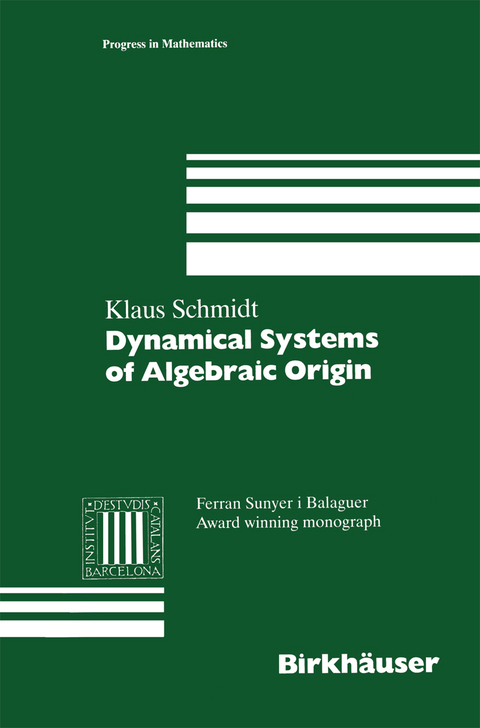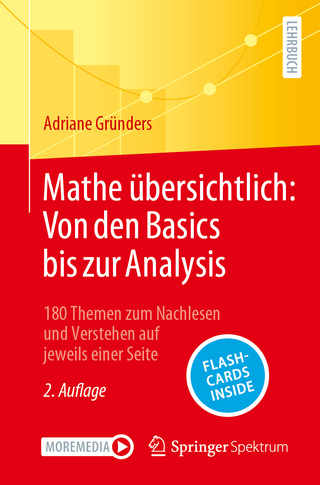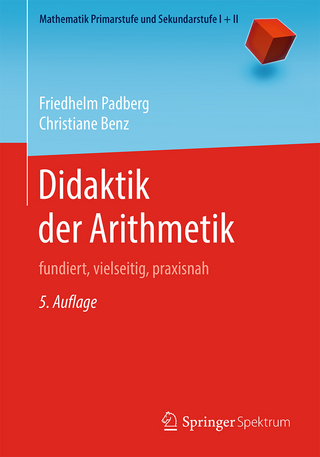
Dynamical Systems of Algebraic Origin
Springer Basel (Verlag)
978-3-0348-9957-4 (ISBN)
I. Group actions by automorphisms of compact groups.- 1. Ergodicity and mixing.- 2. Expansiveness and Lie subshifts.- 3. The descending chain condition.- 4. Groups of Markov type.- II. ?d-actions on compact abelian groups.- 5. The dual module.- 6. The dynamical system defined by a Noetherian module.- 7. The dynamical system defined by a point.- 8. The dynamical system defined by a prime ideal.- III. Expansive automorphisms of compact groups.- 9. Expansive automorphisms of compact connected groups.- 10. The structure of expansive automorphisms.- IV. Periodic points.- 11. Periodic points of ?d-actions.- 12. Periodic points of ergodic group automorphisms.- V. Entropy.- 13. Entropy of ?d-actions.- 14. Yuzvinskii's addition formula.- 15. ?d-actions on groups with zero-dimensional centres.- 16. Mahler measure.- 17. Mahler measure and entropy of group automorphisms.- 18. Mahler measure and entropy of ?d-actions.- VI. Positive entropy.- 19. Positive entropy.- 20. Completely positive entropy.- 21. Entropy and periodic points.- 22. The distribution of periodic points.- 23. Bernoullicity.- VII. Zero entropy.- 24. Entropy and dimension.- 25. Shift-invariant subgroups of $$ {(mathbb{Z}/pmathbb{Z})^{{{mathbb{Z}^2}}}} $$.- 26. Relative entropies and residual sigma-algebras.- VIII. Mixing.- 27. Multiple mixing and additive relations in fields.- 28. Masser's theorem and non-mixing sets.- IX. Rigidity.- 29. Almost minimal ?d-actions and invariant measures.- 30. Cohomological rigidity.- 31. Isomorphism rigidity.
| Erscheint lt. Verlag | 23.8.2014 |
|---|---|
| Reihe/Serie | Progress in Mathematics |
| Zusatzinfo | XVIII, 310 p. |
| Verlagsort | Basel |
| Sprache | englisch |
| Maße | 155 x 235 mm |
| Gewicht | 503 g |
| Themenwelt | Mathematik / Informatik ► Mathematik |
| Schlagworte | group theory • Lie groups |
| ISBN-10 | 3-0348-9957-2 / 3034899572 |
| ISBN-13 | 978-3-0348-9957-4 / 9783034899574 |
| Zustand | Neuware |
| Haben Sie eine Frage zum Produkt? |
aus dem Bereich


